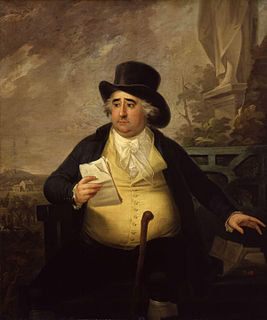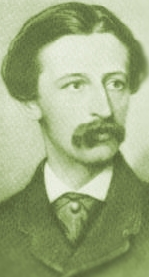A Quote by Charles James Fox
The question now was...whether that beautiful fabric [the English constitution]...was to be maintained in that freedom...for which blood had been spilt; or whether we were to submit to that system of despotism, which had so many advocates in this country.
Related Quotes
During the last two centuries and a half, physical knowledge has been gradually made to rest upon a basis which it had not before. It has become mathematical. The question now is, not whether this or that hypothesis is better or worse to the pure thought, but whether it accords with observed phenomena in those consequences which can be shown necessarily to follow from it, if it be true
And so they lived many happy years, and the promised tasks were accomplished. Yet long afterward, when all had passed away into distant memory, there were many who wondered whether King Taran, Queen Eilonwy, and their companions had indeed walked the earth, or whether they had been no more than dreams in a tale set down to beguile children. And, in time, only the bards knew the truth of it.
What we're going to do is have an immigration system that's in our national interest, and that's not what we've had up until now, We've had freedom of movement, which means we haven't been in control of who enters our country - those individuals have, just because of their nationality. And that's going to change.
In the American hemisphere the cause of freedom and independence has continued to prevail, and if signalized by none of those splendid triumphs which had crowned with glory some of the preceding years it has only been from the banishment of all external force against which the struggle had been maintained. The shout of victory has been superseded by the expulsion of the enemy over whom it could have been achieved.
Malcolm Bradbury made the point, and I don't know whether it's a valid one or not, that the real English at the moment is not the English spoken in England or in America or even in Canada or Australia or New Zealand. The real English is the English which is a second language, so that it's rather like Latin in the days of the Roman Empire when people had their own languages, but had Latin in order to communicate.
You have had many and great sadnesses, which passed. And you say that even this passing was hard for you and put you out of sorts. But, please, consider whether these great sadnesses have not rather gone right through the center of yourself? Whether much in you has not altered, whether you have not somewhere, at some point of your being, undergone a change when you were sad?
The 1980s were fantastic. This was a time when we were at the peak of our creative work. The question of whether we would exist or not - something which everybody used to ask, including ourselves - stopped. Profits kept pace with growth requirements. HCL had credibility - that was the biggest barrier we had to break.
In my kind of reporting work, you don't parachute in after some big, terrible event, which is important and has to be covered, but offers only a glimpse. It's the kind of work in which you ask, what is my understanding of how the world works, and where can I go to see these questions get worked out in individuals' lives? That was really the question for me: whether I had anything to add to what had already been written.
To me... it appears that there have been differences of opinion and party differences, from the first establishment of government to the present day, and on the same question which now divides our own country; that these will continue through all future time; that every one takes his side in favor of the many, or of the few, according to his constitution, and the circumstances in which he is placed.
I ask that you offer to the political arena, and to the critical problems of our society which are decided therein, the benefit of the talents which society has helped to develop in you. I ask you to decide, as Goethe put it, whether you will be an anvilor a hammer. The question is whether you are to be a hammerwhether you are to give to the world in which you were reared and educated the broadest possible benefits of that education.
There has been a controversy started of late, much better worth examination, concerning the general foundation of Morals; whether they be derived from Reason, or from Sentiment; whether we attain the knowledge of them by a chain of argument and induction, or by an immediate feeling and finer internal sense; whether, like all sound judgement of truth and falsehood, they should be the same to every rational intelligent being; or whether, like the perception of beauty and deformity, they be founded entirely on the particular fabric and constitution of the human species.
There's an interesting question, whether the anarchists had alternatives [in Spain]. If they did tend to support the government that had been destroyed, what were the alternatives? There was actually a proposal by Camillo Berneri, an Italian anarchist who was in Spain at the time, which is not a crazy notion in my opinion. He opposed participation in government and was against the formation of an army, meaning a major army to fight [Francisco] Franco.



































